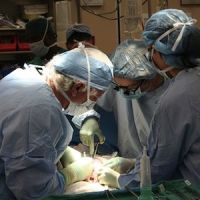Patient safety before, during, and after surgery requires an appropriately educated, committed and empowered health care team, according to recommendations presented at the recent inaugural National Surgical Patient Safety Summit (NSPSS). The two-day event, included more than 100 representatives from medical professional associations, insurers, health care systems, payers and government agencies.
Sponsored by the American Academy of Orthopaedic Surgeons (AAOS) and the American College of Surgeons (ACS), NSPSS goals are the development of surgical care and surgical education curricula standards, and prioritising safety research efforts.
Technical and non-technical skills are both important to successfully and safely perform surgery. The surgeon, anaesthesiologist, nurses, and all supporting staff must ensure consistent use of surgical safety strategies and tools throughout surgical care, including patient-centered shared decision-making and timely informed consent, standardised surgical site marking procedures, accurate surgical information transfer, integrated electronic medical records, and effective team communication and coordination.
"Surgical safety improves when non-technical strategies, tools and behaviours are combined with proficient surgical skills," said William Robb, MD, co-chair of NSPSS and past-chair of the AAOS Patient Safety Committee. "Each member of the surgical team needs to know how to effectively communicate and appropriately adapt during an adverse situation. An empowered, well-trained surgical team improves surgeon performance and patient outcomes."
Workgroups, including surgeons, anaesthesiologists and nurses, convened prior to the summit to prepare draft recommendations for all surgical team members, surgical institutions, medical and nursing schools, surgical residency and fellowship programs, and surgical credentialing organisations. The recommendations include the creation and adoption of standardised:
- Surgical safety education programs with assessment of competence for surgeons, residents, medical students, peri-operative team members, and surgical institutions on effective communication, resilience, leadership and teamwork;
- Safety training modules (simulation-based) for the entire surgical team--doctors, nurses, anaesthesiologists, surgical technicians and physician assistants;
- Training on teamwork, and other essential non-technical skills, beginning during undergraduate medical education, and continuing through surgical residency and postgraduate training, as a requirement of ongoing Maintenance of Certification (MOC);
- "Shared-decision making" practices and procedures to ensure an informed and prepared surgical patient;
- Patient-centered, timely and accurate surgical consent processes;
- Communication tools and procedures to improve the accuracy and efficiency of transferring patient information before, during and following surgical care;
- Surgical site marking and identification policies (with local modifications as appropriate) for all surgical procedures and surgical facilities, and utilising a pre-surgical team "Brief," a pre-surgical team "Time-out" and a postsurgical team "De-Brief";
- A common data collection system to measure and improve patient safety outcomes. The system should include uniform definitions, a consistent reporting structure, and accessibility and usability by all stakeholders--hospitals, care providers and medical society databases.
These recommendations will be used to finalise National Surgical Patient Safety Standards, develop surgical safety education curriculum proposals, and to identify surgical safety knowledge gaps and research priorities.
"We believe that the implementation of these standards will guide surgical teams and members to achieve the ultimate goal of ensuring safe and optimal surgical patient outcomes," said David D. Teuscher, MD, AAOS past president.
Source: Eureka Alerts
Image Credit: Pixabay



























